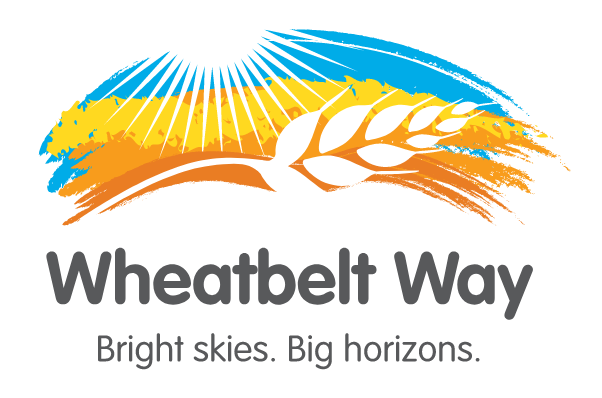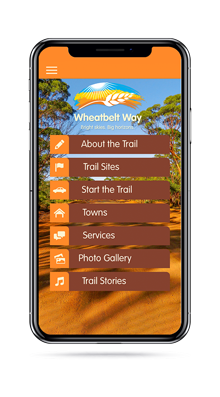People travelling around the Wheatbelt Way with pets are reminded to be aware of their surroundings as 1080 baiting programs may be underway in the area.
If you are bushwalking or free camping in the Wheatbelt Way you should be particularly aware to prevent accidental pet poisoning.
The 1080 baits are used in the region by landholders and Recognised Biosecurity Groups across the State to control feral pests such as foxes, wild dogs and rabbits. Baiting programs are important to protect livestock and native animals from attacks particularly by wild dogs.
Landholders generally bait in autumn and spring to protect livestock and crops, however, travellers should be aware that baiting can occur year-round and a cautious approach must be taken when travelling with domestic pets.
The Eastern Wheatbelt Biosecurity Group and Central Wheatbelt Biosecurity Association of which the Shires of the Wheatbelt Way are a part of undertake control activities including baiting and trapping all year round.
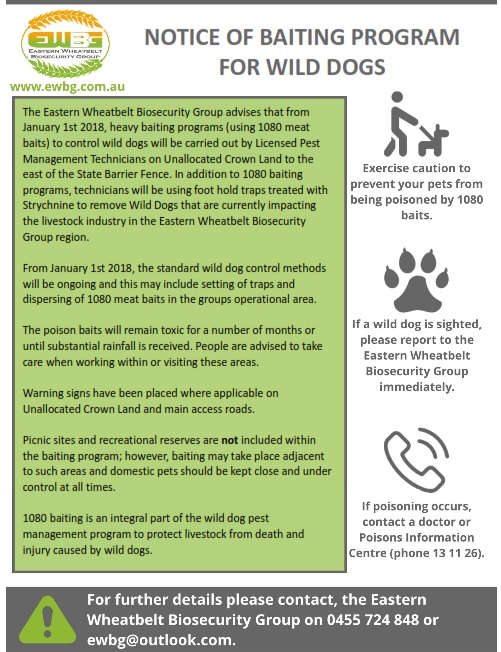
Baits are placed away from roadsides and warning signs will be in place at property entry points, however, pet owners may not always see warning signs when exercising their dogs. Below are an example of the variety of the types of signs you may see:
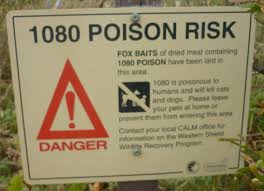
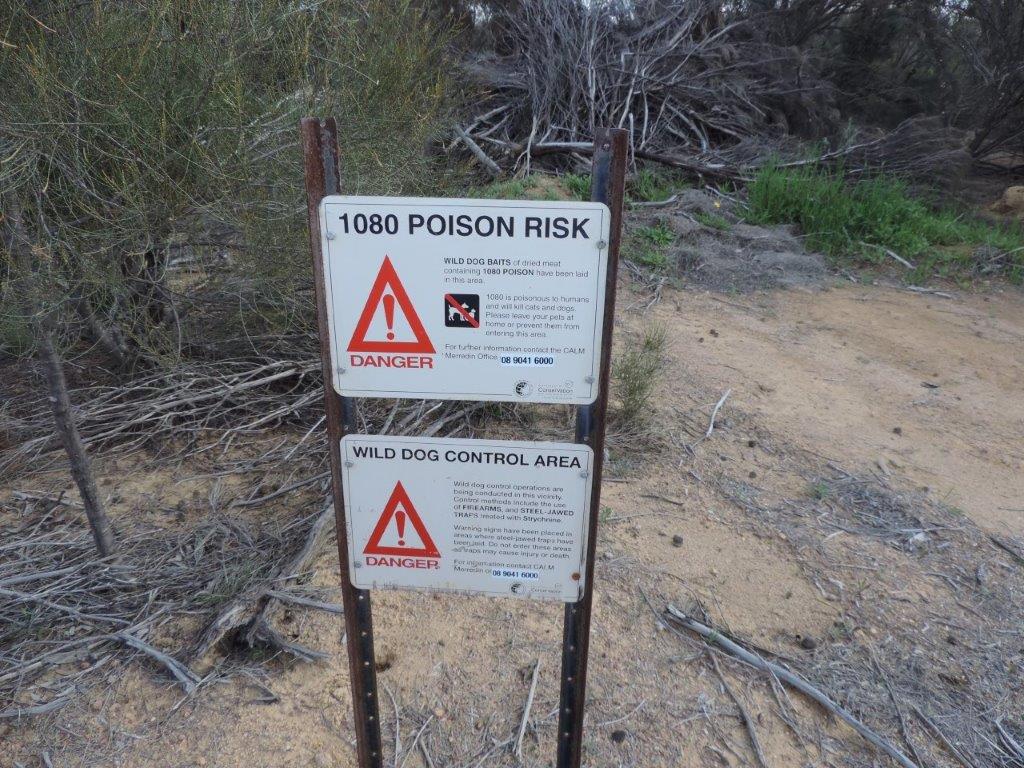

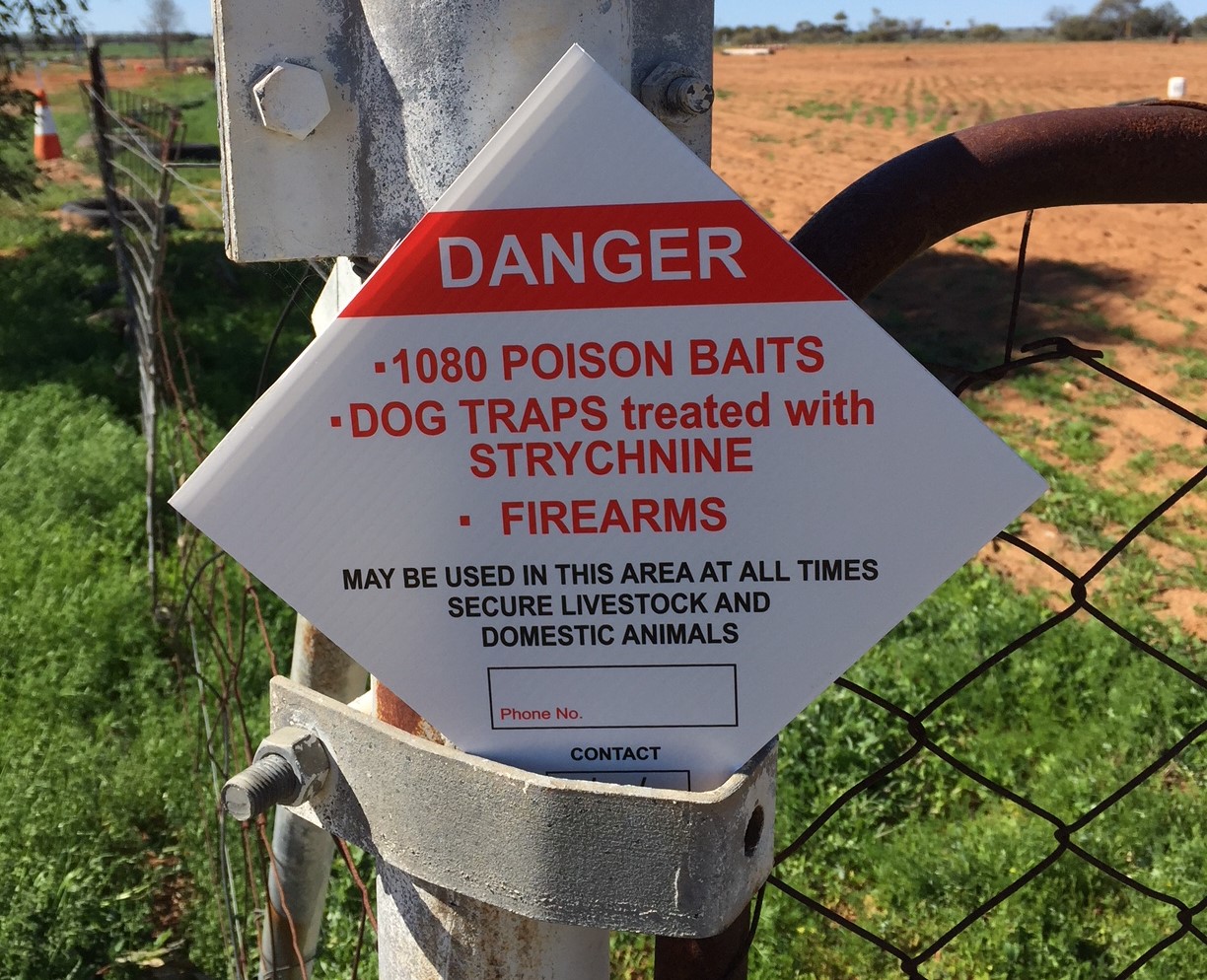
1080 bait is used because most native animals have a degree of tolerance to the chemical as it is found naturally in some plants.
However, if ingested by domestic pets, such as cats and dogs, it can be fatal, which is why we’re are reminding travellers to be aware of their surroundings.
The 1080 meat baits are attractive even to well-trained pets, especially dogs.
There are some simple guidelines to follow to reduce the risk of accidental 1080 poisoning.
- Keep your pets on a lead or fitted with a muzzle at all times, particularly if you stop on the side of the road, in a parking bay or overnight camping area.
- Don’t let your pet scavenge for food and remember pets are not allowed to be taken into national parks or DBCA reserves where baiting is often undertaken. In the Wheatbelt Way this includes the sites of Korrelocking Reserve, Billyactting Hill Nature Reserve and Sandford Rocks.
- Keep an eye out for signs indicating 1080 baits are being used in the area.
Travellers who suspect their pet has taken bait should induce vomiting and immediately seek veterinary assistance.
If there are any suspect cases of 1080 poisoning they should be reported to the Department of Primary Industries and Regional Development Senior Policy Officer, Gerard Leddin on 9363 4019 or email rcp.applications@dprid.wa.gov.au.
